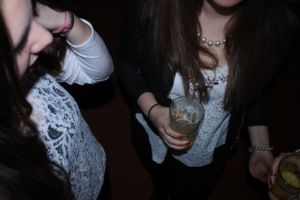News
Danish teens still most boozy in Europe
This article is more than 9 years old.
2015 ESPAD Report reveals that a third of Danish 15-16 year olds have been intoxicated in the past month

Expert: accessibility is part of the issue (photo: Pixabay)
The newly-released 2015 ESPAD Report has found that Danish teens aged 15-16 are more often intoxicated than their European peers.
The report, compiled and published by ESPAD (European School Survey Project on Alcohol and Other Drugs), revealed that 32 percent of the 1,670 Danish teens surveyed had been intoxicated at least once over the past 30 days.
The average across the 35 European nations that took part in the report (here in English) was 13 percent.
The report also revealed that 92 percent of Danes born in 1999, so those aged 17-18, have drunk alcohol in the past year, compared to a European average of 80 percent. Interestingly, however, the Danish use of cannabis was lower than the European average.
“The lifetime uses of cannabis and tranquillisers or sedatives without a prescription were 4 percentage points lower than the ESPAD average,” the report found.
“Hence, the most striking thing about Denmark is that reported alcohol use is extensive, as the other variables tend to be below the ESPAD average.”
READ MORE: Danish government would allow minors to serve alcohol
Lax legislation
According to Professor Morten Grønbek, the head of the Department of Public Health at the University of Southern Denmark, one of the reasons that Danish youngsters booze it up so much is accessibility.
He argues that the age limit for buying alcohol in shops in Denmark is too complex. It is not rigidly set at 18 as in other nations. And he doesn’t buy the contention that the youngsters are simply mirroring their parents.
“While young Danes are always leading the way compared to other nations, Danish adults don’t,” he told Metroxpress newspaper.
“If you look at how many litres of pure alcohol Danish adults drink, we are roughly in the middle of the pack in Europe.”
Denmark is ranked 26th in the world according to how much pure alcohol they drink per year, according to the WHO.










































